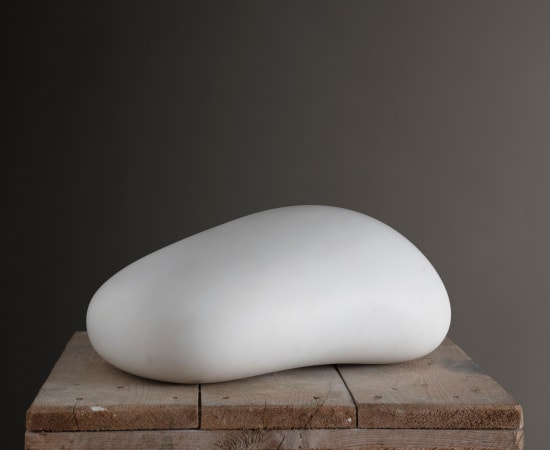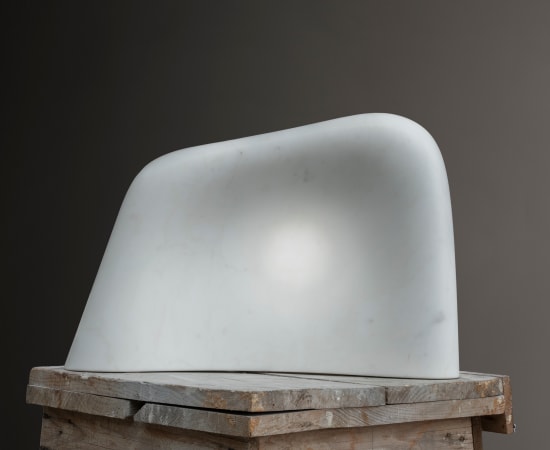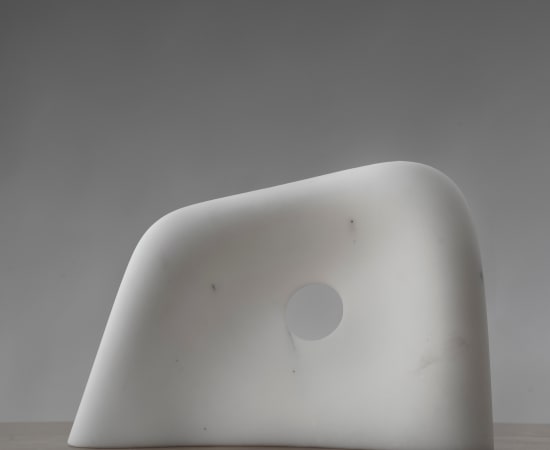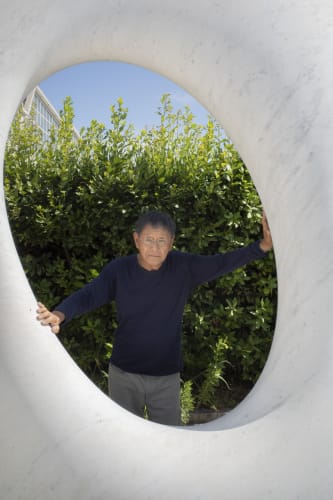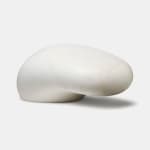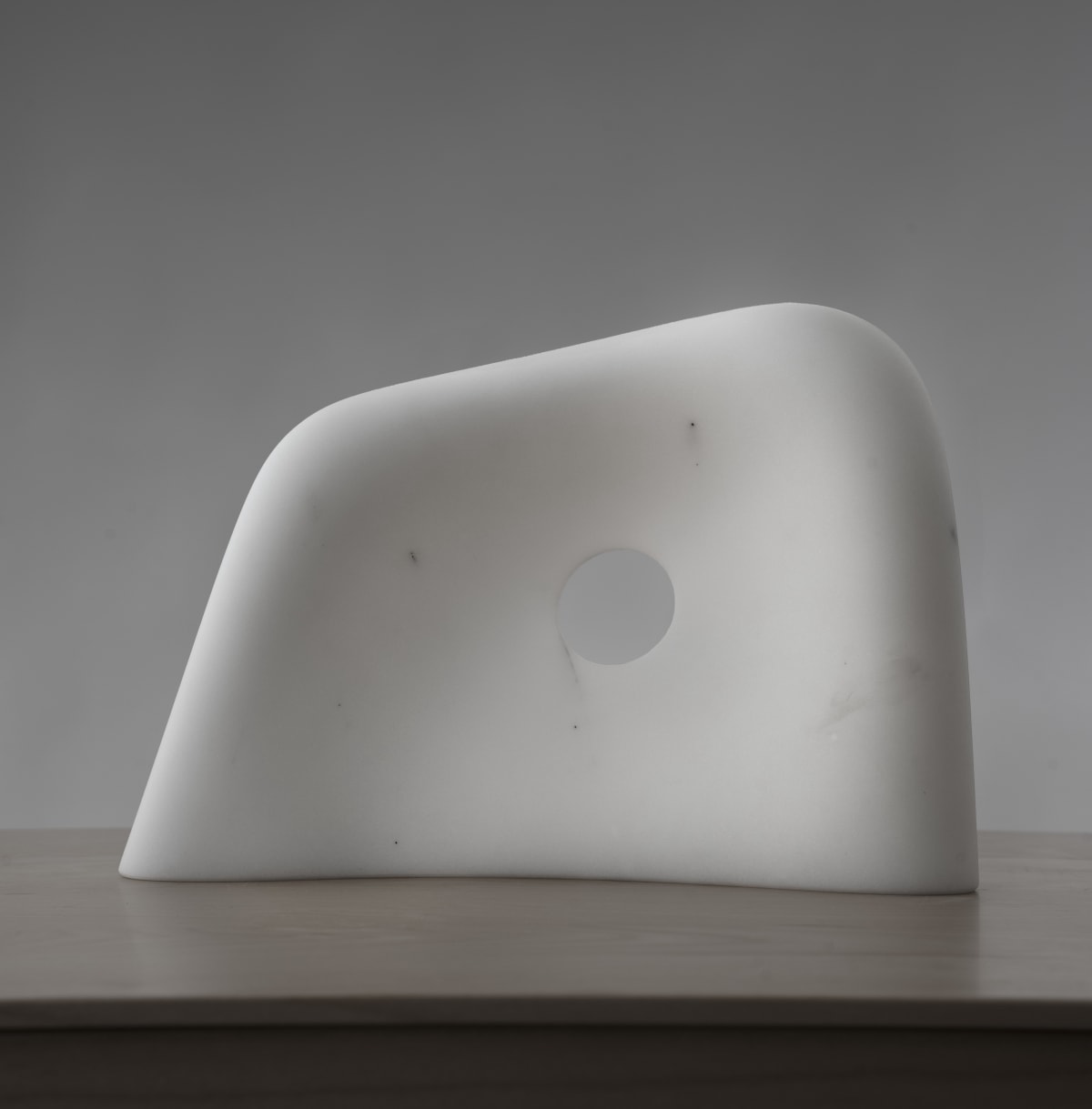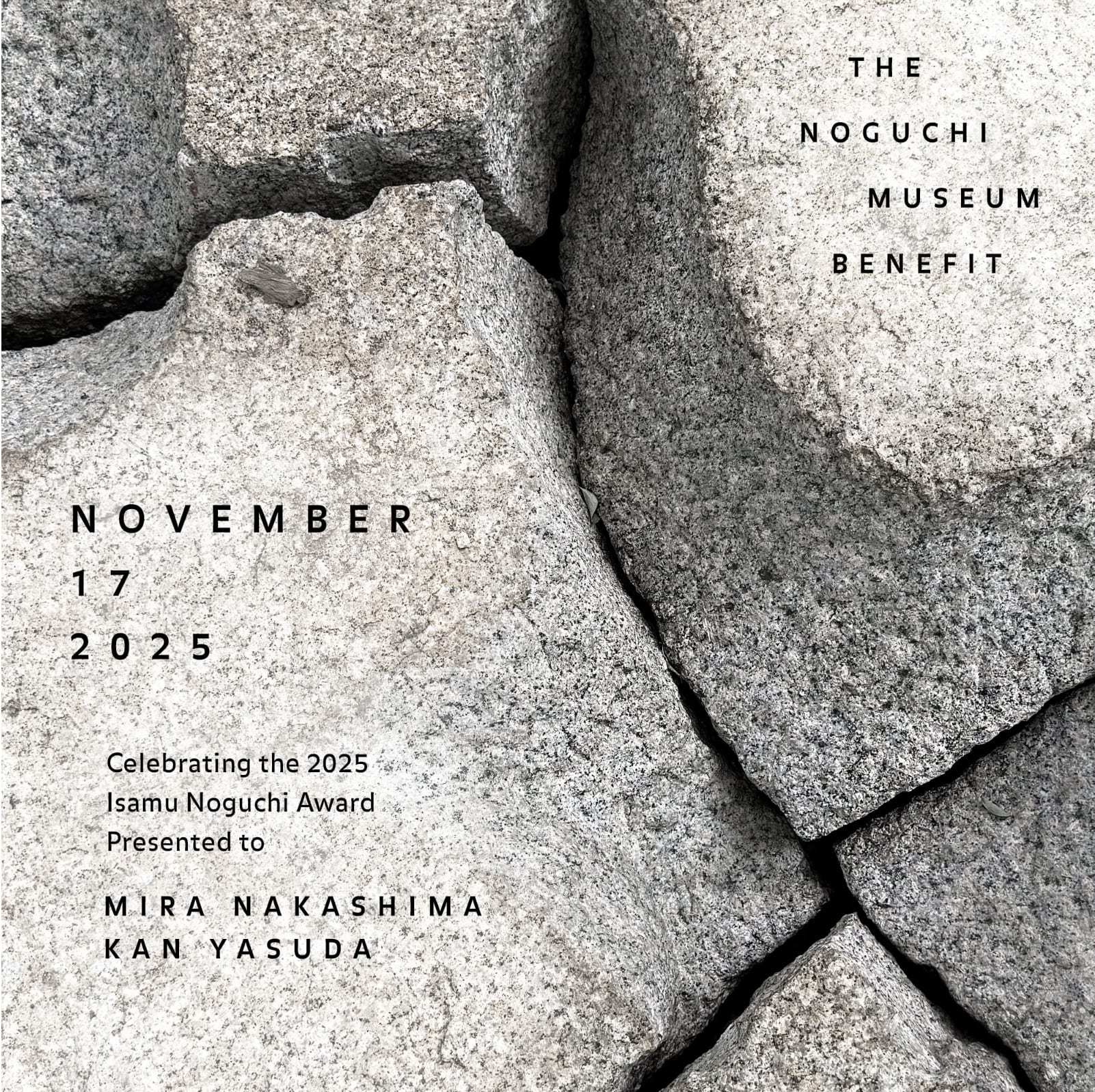-
Overview
"The sculpture does not insist anything; it simply exists. Please gently touch it with your hand."
- Kan Yasuda
Kan Yasuda (b. 1945) is a foremost sculptor, working in both Japan and the historical Pietrasanta, Italy, who is known for his monumental carved carrara marble and white bronze artworks.
Hailing from Bibai, Hokkaido, Yasuda studied at Hokkaido University of Education before obtaining a master’s degree in sculpture under the guidance of Yasutake Funakoshi at the Tokyo University of Art. Participation in a fellowship from the Italian Government brought Yasuda to Italy in 1970, where he has continued to work and live for more than 60 years. After studying under Professor Pericle Fazzini at the Academy of Fine Arts in Rome, he began his studio in the northern Italian town of Pietrasanta — a place world famous for its superior quality of marble. Yasuda innately explores the unconscious by pushing the extent of masonry—and physical motions of his own body—to express and challenge the limits of stubborn materials. His work with the maestro di bottega Giorgio Angeli brought him collaboration with sculptors like Isamu Noguchi, and led to the 1992 establishment of the Kan Yasuda Sculpture Museum – Arte Piazza in his Japan hometown. Since, Yasuda's monumental sculptures have exhibited widely in Europe and Japan—often on much-traversed paths where the human touch becomes an integral element. Yasuda is the recipient of the 2025 Isamu Noguchi award, coinciding with his solo exhibition at Ippodo Gallery.
-
Biography
Selected Awards:
1992 The 42nd Minister of Education and Culture Award for New Artist, Japan
1994 International Award for Sculpture, Italy
1995 Award of Pietrasanta of the World, Italy
2001 Special Award of Puccini Foundation, Italy2002 The 9th Inoue Yasushi Cultural Award, Japan
2003 The 15th Murano Togo Award for the Arte Piazza Bibai project, JapanAward for Poem of Alpi Apuane, Italy
2003 Special Award of Tuscany, Italy
2006 Order of the Star of Italian Solidarity (The Honor of the Italian Republic)2009 Japan Awards, Italia Japan Foundation
2010 Giacomo Puccini Award, Puccini Foundation, Italy Award of Commissioner
2013 Cultural Affairs, Japan Hokkaido Culture Award, Japan
2015 Lifetime Acheivement Award of Hokkaido, Japan- 2020 Architectural Institute of Japan Culture Award
2025 Isamu Noguchi Award
Public Collections:
Hokkaido Museum of Modern Art, Sapporo, Hokkaido
Tokyo Metropolitan Teien Museum, Tokyo, Japan
Trajan Market, Imperial Forum Museum, Roma, Italy
Don Luigi Giussani Park, Milan, Italy
Pietrasanta Station, Pietrasanta, Italy
Boboli Garden, Florence, Italy
APEC Naru Park, Busan, South Korea
Yorkshire Sculpture Park, West Bretton, U.K.
Bridgewater Hall, Manchester, U.K.
1251 Avenue of the Americas, New York, U.S.A.
Garachico, Tenerife, Spain
Aurora Place, Sydney, Australia
-
ISAMU NOGUCHI (1985)
For Kan Yasuda
There was this enormous sculpture towering into arctic clear cold air. The sculpture itself was of this same nature, as though hewn out of ice. I could tell from even a photograph. Who was this sculptor who could conceive a piece of such belonging? It was not the horizon that defined it but a belonging to people, a mutuality suggested by the form.
My coming to know Yasuda Kan had always this question in the background. Was he really the man I thought he must be? Then along came another monument in the north; a group of smokestacks ending on top with birdlike cones that seemed to guard the bleak land against intruders. Can there be any doubt about those cones thumbing their noses every which way a decoy for missiles? What better protection could an artist offer than laughter? Art is what counts of course. That which gives the quality to this humor. I like to think that the motivation doesn't matter, so long as it gets the artist going. But art is a response after all and this must be counted among its worth. For art itself to be the motive is another matter.
To produce a masterpiece must be the biggest mistake. I myself once thought I had done so with a sculpture I called Kouros after the archaic Greek. I made mine of pink marble 3 meters high. It was shown at the Museum of Modern Art in 1946.
At that time I had lunch with a wise man who said, "You must know you cannot make anything more than you are". He said, "Never make art that pleases you". I knew he meant my Kouros. "Only make what you dislike, but cannot help but do". I was at a loss to know where my aspiration as an artist might turn. Who was I to not aspire, nor ever become? Yasuda was fortunate in being able to bypass art and produce so fine a work, although he will no doubt insist this was his sole intention. Again I would say he is fortunate in knowing when to insist on the process of art to protect his integrity.
When I was last in Italy at Giorgio Angeli's workshop in Querceta where both Kan and I work, I saw a recent sculpture of his which I thought came from a similar area of search which transcends art. I felt that perhaps he did not know what to make of it. Is there such a thing as better? I never asked but I wonder whether he really liked it to fulfill Duchamp's dictum. Yasuda's work like that of many artists runs on two tracks. One may be named art's art and the other, the other. My remarks are directed to the other. Art's art is the artist's difficult conscience. It is his past development to which he owes all that he has become. It reveals his inner self, or so he thinks. But that of course is his most serious problem. How to develop in depth betrayals true message. It is the artist's obligation to change into his ever widening perception. Kan has expressed it with his forked squares where he denies himself and all his skills. I know intimately of what I write.
-
RENZO PIANO (2015)
Kan Yasuda is an extraordinary sculptor, and he is also a stone quarry worker: it really does, going to look for the right stone inside the mountain.
And his sculpture comes from there, even before they are carved and exist.
This is common to all the great sculptors who made Apuan Alps in Toscany, Italy as their natural home.
I like his sculptures, they are often like giant pebbles dragged through the streets by the current of an unlikely flood.
Smoothed by time and by the flowing water.
Sometimes the bronze takes the place of the stone but it retains all the strength and smoothness.
And in fact, it takes a lot of time for Kan, in doing his work.
The rough-planed, the smoothing, the gloss, the caresses until the right light is released; as they, of course, have many sculptors.
And with this work patience is always accompanied by the expectation of the extraction of a marble sculpture.
Welcome Kan Yasuda in New York City, in Manhattan, this beautiful city based on the rock foundation, where age is captured in the world.
-
Director's Letter
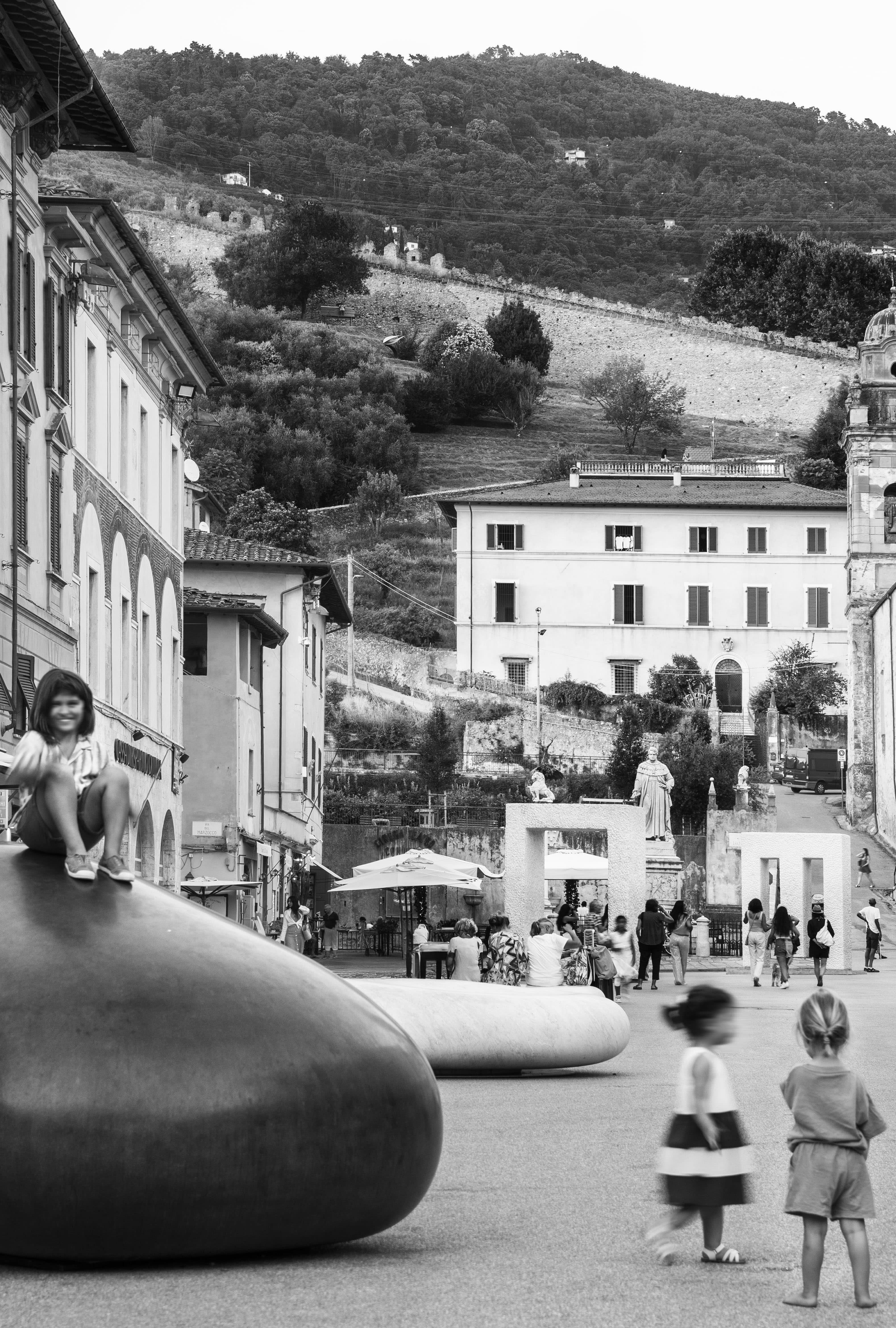
Shape of Dreams
– Shoko Aono 2025
When I was ten years old, I encountered “Tensei” and “Tenmoku” in the garden of the Karuizawa Saison Museum of Art, in Japan. The two opposing white marble square statues stood tall and dignified like a gate. Their stone surfaces bore the uneven marks of chisels, marks that retain a warmth true only to that which is handmade. Passing through that gate, I felt as though I had been transported to a new world. Just as the evening sun streamed through the gaps of the statues, their white outlines seemed to vanish, dissolving into the sky. It was an ineffable moment of profound realization: I saw that humans exist between heaven and earth.
Thirty-four years have passed since then. To now have the opportunity to hold this exhibition of Maestro Kan Yasuda at Ippodo Gallery NY feels like a dream.
Kan's work resembles dreams. Upon waking, an overwhelming emotion lingers, yet the story itself is hard to recall. Your heart is moved, yet you cannot describe the contours of what moved you. You have touched the unconscious world—one that cannot be grasped despite your greatest efforts, one that you try hard not to forget. Similarly, Kan’s work is not something to be seen, but something to be touched. It is not something to be thought about, but something to be felt. As he puts it, “[his] job is to give sculpture—a visible form, a form that can be touched—to things that cannot be seen or touched.”
This June (2025), I was able to visit the installation site for Kan’s sculpture exhibition, Oltre la Forma, in Pietrasanta, Italy. One by one, under the deep blue Tuscan sky in a small Piazza that has been inhabited by discerning locals since medieval times, Kan set down his massive stone sculptures. Amidst a blend of tension and intuition, and with the help of his dear friend and master stonemason, Giorgio Angeli, the sculptures fell into place in perfect, unspoken harmony. The moment the sculptures were set, children swarmed around them, eager to climb and lay down on them, press their cheeks against them, or stroke them with their hands. In an instant, they were embraced by people. Like the first heartbeat in an embryo that has undergone repeated cell division, Kan's works signal life by imbuing space with a soul and carving out time.
Every conceivable motion of Kan’s confrontation of these monolithic stones can be seen in their form, they capture artistry pushed to its absolute limit. With every sculpture that I touched in Pietrasanta, a wave of profound emotion slowly washed over my mind and body. If the inner self had a form, this must be it. Or, perhaps, it is the shape of the universe itself. I remembered the people dear to me. I will experience many deaths and partings, both now and in the future. Yet, as long as Kan's work exists, I feel a profound peace, a sense that I need not fear death. It feels as though a soul dwells within this stone. Kan, who believes he can only create for about 70 to 80 years at most, continues to work on this pure white marble, a miracle of the universe that has crystallized over thousands of years. Chiseling and filing away, he tirelessly polishes the surface with his own two hands. Why doesn't he delegate? Why must he touch every millimeter of the work himself to bring it into being? The reason is this: to connect the past, present, and future. Kan's work teaches us that the past is not time that has gone by and concluded, but, rather, time that continues into the present. His sculptures, even when seen only in fragments, are something that can be perceived as “incredible across the ages.” They will expand far into the future and endure for millennia. Because that which cannot be shaped—the unconscious and the past—has found a form in Kan’s work, its vibration is eternal. Giorgio's words perfectly sum it up: “Kan's work is made of love.”
-
Works
Kan Yasuda b. 1945
Ishinki - 意心帰, 2011White Marble Stone4 3/8 x 9 7/8 x 5 7/8 in
11 x 25 x 15 cmB27671NPCopyright The ArtistFurther images
An earlier, small-scale marble "ISHINKI," this work exemplifies the artist's long-standing exploration of the unconscious mind. This masterful equilibrium defies its asymmetric shape, making the sculpture a testament to both technical mastery and philosophical depth. Perfected for display on an interior shelf, it is a compact, tangible representation of the harmony between intention and heart.1of 7ExhibitionsEvents-

Artist Talk: Kan Yasuda x Giorgio Angeli x Hitomi Iwasaki
18 Nov 2025We are delighted to welcome the artist Kan Yasuda, who travels to New York, to celebrate his reciept of the 2025 Isamu Noguchi Award and...Read more -

Opening Reception, Kan Yasuda: Forms of the Unconscious
13 Nov 2025Join us in celebrating the artist Kan Yasuda, the recipient of the 2025 Noguchi Award, at Ippodo Gallery in TriBeCa for the opening reception of...Read more
Join the Ippodo Gallery newsletter
* denotes required fields
We will process the personal data you have supplied to communicate with you in accordance with our Privacy Policy. You can unsubscribe or change your preferences at any time by clicking the link in our emails.

